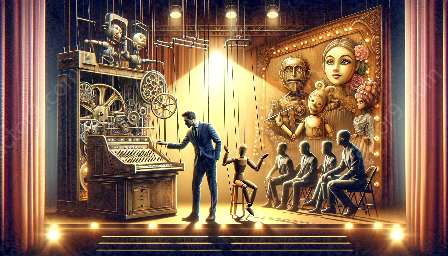Puppetry has long been a powerful form of artistic expression, using the manipulation of puppets to tell captivating stories and convey powerful messages. In recent years, puppetry has not only entertained audiences but also served as a vehicle for challenging societal norms and raising awareness about social justice issues. This convergence of puppetry and activism has sparked important conversations and inspired social change.
Performance as Activism
One of the ways in which puppetry challenges societal norms is through its ability to serve as a medium for activism. By bringing attention to social justice issues through performances, puppeteers can use their art to advocate for change. Puppetry performances can address topics such as systemic racism, gender inequality, environmental justice, and more, resonating with audiences on a deeply emotional level.
Subversion of Expectations
Puppetry has the unique ability to subvert societal expectations by presenting alternative perspectives and narratives. Through the manipulation of puppets, puppeteers can challenge traditional power structures, disrupt stereotypes, and offer representations of marginalized communities that are often overlooked in mainstream media. This subversion of expectations encourages audiences to critically examine their own beliefs and perceptions, ultimately contributing to a more inclusive and empathetic society.
Engagement and Education
Moreover, puppetry serves as a powerful tool for engaging and educating communities about social justice issues. Puppet shows and workshops can spark meaningful discussions and encourage audience members to become more actively involved in advocating for change. By creating spaces for dialogue and reflection, puppetry fosters a sense of collective responsibility and empowers individuals to take action in support of social justice causes.
Building Empathy and Understanding
Through the emotional resonance of puppetry, audiences are often able to develop empathy and understanding for the lived experiences of others. Whether addressing topics related to mental health, refugees, or LGBTQ+ rights, puppetry has the capacity to humanize complex issues and bridge gaps in understanding. By promoting compassion and empathy, puppetry plays a vital role in challenging societal norms and fostering a more compassionate society.
Advocacy and Solidarity
Ultimately, the intersection of puppetry and activism exemplifies the power of art in advocating for social change and promoting solidarity. By collaborating with grassroots organizations and social movements, puppeteers are able to amplify the voices of the marginalized and advocate for systemic change. Through their performances and community engagement efforts, puppeteers become catalysts for addressing social justice issues and promoting a more equitable and inclusive world.
Conclusion
Puppetry's capacity to challenge societal norms and raise awareness about social justice issues is undeniable. Through its unique storytelling capabilities, subversion of expectations, and capacity for advocacy and education, puppetry stands as a compelling form of activism. From addressing systemic inequalities to amplifying voices that are often silenced, puppetry continues to play a significant role in fostering social change and shaping a more just and equitable society.


























